2D LiDAR sensor – high-performance and cost-effective in compact housing
With a large scanning range, fine angular resolution and high sensitivity, the picoScan100 2D LiDAR sensor, successor of the TiM series, is setting new standards. It also reliably detects small and dark objects. The sensor delivers exact measurement data and features integrated processing of data that is transmitted through various communication interfaces. The compact picoScan100 equipped with multi-echo technology has a rugged housing and ensures reliable measurement results even under harsh ambient conditions. It can be used in demanding industrial applications both in- and outdoors. The picoScan100, available in three variants (Core, Prime and Pro), can also be adapted with other features to meet individualized requirements.
picoScan100 AT A GLANCE
Benefits
-Space-saving sensor integration
-Precise detection of small and dark objects, even over large distances
-Can be adjusted flexibly to different application requirements
-High measurement availability, even under harsh outdoor ambient conditions
-Efficient data processing inside the sensor ensures high availability in applications, e.g. for localization and navigation of autonomous mobile robots (AMRs)
-Flexible connection technology and data integration
-High cost efficiency: Low acquisition and operating costs
-Flexible mounting and fast device exchange
Features
-Compact, rugged housing
-Scanning range: 75 m (90 % remission); angular resolution: 0.5° to 0.05°
-Dynamic Sensing Profiles
-High measurement accuracy – measurement noise, scan field flatness and angular accuracy
-Scanning frequency: 15 Hz to 50 Hz
-Multi-echo technology
-Drivers: ROS, C++ and Python
-System plug with config. memory
ADVANTAGES
 Compact. Powerful. Cost-effective.
Compact. Powerful. Cost-effective.
The picoScan100 2D LiDAR sensors from SICK combine a high performance and future proof hardware with numerous practical software functions in a compact and rugged housing. And best of all: A tailored solution for almost any application can be assembled using the product configurator. That's what we call cost-effectiveness.
.jpg)
Compact
Thanks to its compact housing, the picoScan100 is easy to integrate into many applications even when space is at a premium. In the case of autonomous mobile robots, the small footprint of the sensor enables a good balance to be achieved between the space used by the sensors and other key components, for example, the battery.
.jpg)
Powerful
The high performance hardware of the picoScan100 scans a large area of the environment and ensures a continuously high measurement data quality. Its high computing power also allows the measurement data to be filtered and pre-processed on the sensor.
.jpg)
Cost-effective
A tailored solution for almost any application can be assembled using the product configurator. It also offers numerous smart software functions that allow an efficient design-in and a long service life. The result: High cost-effectiveness in a total cost of ownership (TCO) analysis.
High performance with a small footprint at an affordable price
Everything that a good 2D LiDAR sensor requires
The picoScan100 covers a large working range. The working range is defined by a wide field of view and high scanning ranges. It is also important to be able to reliably detect small and dark objects.
.jpg)
Wide field of view of 276° (270° + 6°)
The wide field of view of the picoScan100 allows a large working range. With two diagonally aligned sensors, it is even possible to cover 360° – and do so with little mounting and alignment effort.
.jpg)
Gap-free environment perception with HDDM+
The HDDM+ multi-pulse measurement method ensures gap-free scanning and immunity to interference. The large number of laser pulses per measurement point results in an overlap of the laser points. This enables the picoScan100 to seamlessly acquire the entire scan area and detect even small objects and structures. Through a statistical evaluation of multiple pulses, any interference by other sensors or laser sources can be suppressed. This is particularly advantageous when using many mobile platforms equipped with sensors in the same environment, e.g. in an automated warehouse.
.jpg)
Improved detection options
The large working range (75 m at 90% remission) and the high angular resolution (up to 0.05°) of the picoScan100 enables small objects or fine structures to be detected even at large distances. This makes the sensor suitable for accurate localization or reliable collision avoidance.
Increased productivity thanks to reliable environment perception
.jpg) Core, Prime, Pro and lots more – configurable for your requirements
Core, Prime, Pro and lots more – configurable for your requirements
The picoScan150 is available in three basic versions: Core, Prime or Pro. These differ in regard to their scanning range, angular resolution, and scanning frequency. After selecting the basic version, further sensor apps and numerous software functions can be added in the product configurator. Features such as multi-echo or the orientation of the system plug can be configured in this way.
.jpg) Core
Core
With the picoScan150 Core, you receive a high performance sensor with a working range of up to 25 m that covers a wide range of applications. Additional SensorApps and software functions can optionally be ordered.
Prime
With a working range of up to 60 m, this version is ideal for demanding applications such as localizing autonomous mobile robots or mapping large spaces. Thanks to numerous optional SensorApps and software functions, you can precisely tailor the picoScan150 Prime to your requirements.
Pro
This version offers a scanning range of up to 120 m and full access to the available SensorApps and all software functions. With the picoScan150 Pro, you receive the ideal combination of powerful measurement performance and a high level of flexibility.
.jpg)
Modular software assembly
The sensor that fits your application: Choose between different software features such as filter functions, multi-echo function or reflector detection.
.jpg)
Advance parameterization included
Save valuable time during commissioning. You can already store predefined settings or parameters sets at the time of ordering. SICK loads them onto the device before delivery.
.jpg)
Modular system plug
The system plug can be mounted either facing downwards or to the rear. The modular concept supports different interfaces for various applications.
Select a suitable version of the picoScan150 and configure your individual solution.
.jpg) Diverse applications. One solution. picoScan100.
Diverse applications. One solution. picoScan100.
The picoScan100 2D LiDAR sensor offers tailor-made solutions for a wide range of applications. Whether used for the navigation of small autonomous mobile robots (AMRs), as a driver assistance system in industrial trucks, or in stationary applications, the picoScan100 can be easily integrated into almost any application – even in outdoor areas – thanks to its compact size.
.jpg)
Autonomous mobile robots (AMRs)
AMRs use the measurement data of the picoScan100 to create a precise map of their environment. The current position and route of the AMR can be determined based on landmarks inside this map.
.jpg)
Service robots
Service robots often move about in a dynamic environment. With the help of the integrated field evaluation, the picoScan100 reliably detects objects in its path and can drive around them.
.jpg)
Industrial trucks
The picoScan100 can be used to monitor the area behind industrial trucks. If an object is located on the route, the sensor sends an appropriate warning signal. The driver can then stop the vehicle in time or avoid obstacles.
.jpg)
Stationary applications
The picoScan100 is also ideal for a wide variety of stationary applications. Its precise measurement data can, for example, be used to capture profile lines from which a volume flow can be calculated.
.jpg) Ideal for outdoor use
Ideal for outdoor use
Even in rain, fog, dust, strong sunlight or cold: Thanks to its rugged design and intelligent software functions, the picoScan100 reliably perceives its environment even in outdoor areas. It ensures a high data availability even when subjected to external shocks or vibrations.

Rugged design
The sensors are impervious to shocks, vibrations, and ambient light. Thanks to the built-in ventilation element, they will also not be harmed by rapid temperature changes.
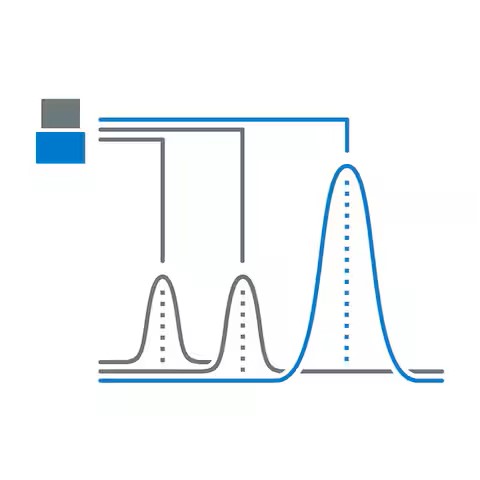
Multi-echo technology
The multi-echo technology enables multiple echo signals per emitted measurement beam to be evaluated. Echoes caused by rain or fog, for example, can thereby be identified and, if necessary, blanked out.

Contamination detection
The integrated contamination detection monitors the condition of the optics cover. The sensor can then be cleaned before a failure occurs. This makes it possible to implement condition-based maintenance.
Outstanding availability even under demanding ambient conditions
More than just measurement data
When acquiring measurement data, the measurement core can be flexibly parameterized to suit the application via Dynamic Sensing Profiles. The accurate measurement data feature a precise time stamp and also provide additional information such as RSSI (Received Signal Strength Indicator) values or information about reflectors.
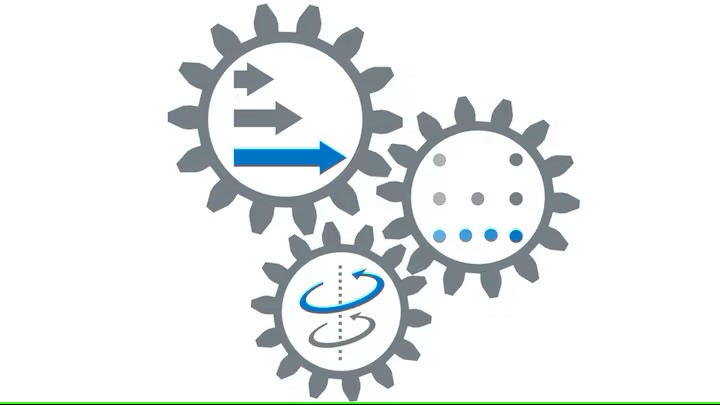
Dynamic Sensing Profiles
Adaptation of the measurement core parameters during operation and without rebooting for dynamic adjustment to the specific requirements in subtasks of the LiDAR sensor.
“One size fits all” sensor using AMRs as an example: From very accurate close range measuring tasks for fine positioning, e.g. docking at a charging station, right through to environment perception in navigation tasks with a large working range and fast response times for collision avoidance.

High level of accuracy in all dimensions
With a low statistical error (typ. ≤ 5 mm) and a low angular error (typ. ≤ 0.005°), the picoScan150 delivers accurate data. Thanks to the precise scan field flatness of ± 1°, the picoScan150 delivers very accurate data even in the vertical dimension. The high measurement data quality thereby obtained means less compensation is required in localization algorithms, and precise positioning can be achieved for mobile platforms.
.jpg)
Fast data output and time synchronization
Functions such as NTP (Network Time Protocol) or PTP (Precision Time Protocol) synchronize the device time with that of other devices and thereby ensure a precise time stamp that is immediately assigned to the measured value during the measurement.
The high scanning frequency of up to 50 Hz and the segmented data output optimizes latencies, which facilitates a high data quality and reduces temporal inaccuracy-related effects in dynamic applications.
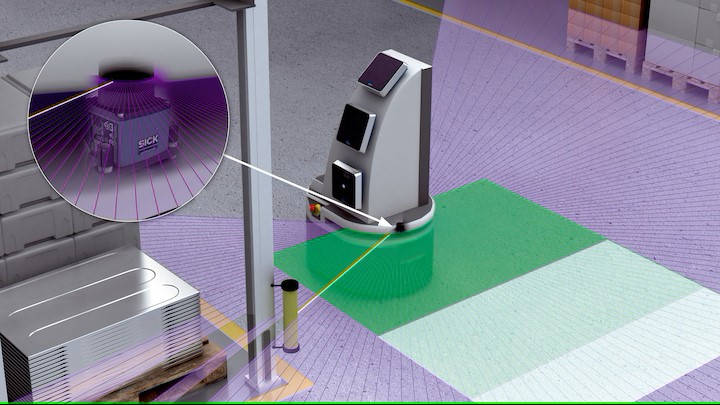
Reflector detection
When the picoScan150 detects a reflector, this information is attached to the measured value and is available in the graphical user interface and in the data telegram. This makes it easier to differentiate between natural targets and reflectors.
Precise measurement data for easier further processing
Wide variety of software solutions
Besides the sensor characteristics, parameterization and efficient further processing of data are essential. SICK offers a wide portfolio of additional software functions and digital accessories for this purpose.
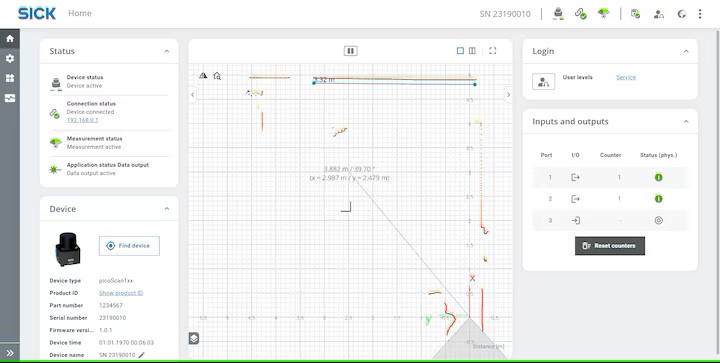
SOPASair web server
SOPASair is an application for mobile devices and browsers and is used for the parameterization, configuration, diagnostics, and scan data monitoring of many SICK sensors. SOPASair helps with finding connected devices and establishing connections.
The web server offers a modern and user-friendly user interface. The browser display eliminates the need to install software and makes the application operating system independent.
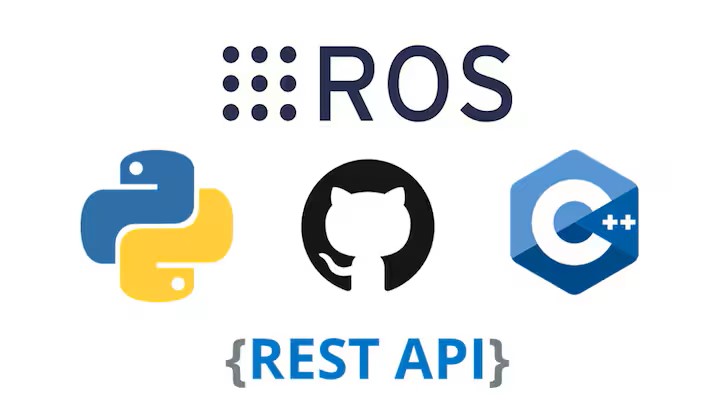
Selection of drivers, data formats, parameterization options, and code examples
Various drivers (ROS 1, ROS 2, C++ and Python), data formats (Compact and Messagepack) and parameterization options (SOPASair web server user interface, SOPAS telegram, or REST API) ensure a fast and efficient integration of the LiDAR sensor. Code examples are available on GitHub, so not all code needs to be created from scratch.
Intuitive operation and time-saving integration